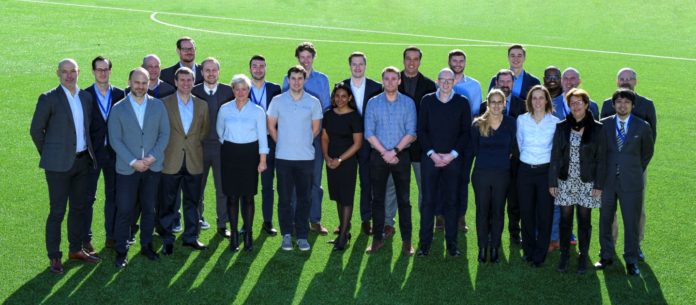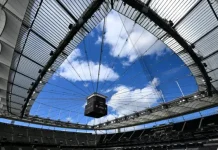(FIFA.com) – The video assistant referee (VAR) system has become a household name in the industry and has a major role to play in enhancing the transparency and quality of the game of football. This technology not only provides a supportive tool to improve referees’ decision-making process but also heightens the fairness of the game.
As in other parts of life, technology is evolving at a rapid pace in sport, and FIFA strives to stay ahead of the curve. To this end, on Thursday, 6 February, FIFA staged the kick-off meeting for the Working Group for Innovation Excellence at the Home of FIFA in Zurich, which was attended by representatives from 13 competition organisers and The IFAB. The development of the next generation of VAR technology will be this group’s pilot project, with clear objectives to be attained by 2022.
More information, higher speed and affordability
The aims of the Working Group for Innovation Excellence are to discuss and coordinate the next development steps, exchange experiences and explore new ideas based on three key principles for the future development of VAR technology:
- continued development of additional and more accurate information to assist the decision-making process;
- making the review process as efficient as possible; and
- making VAR technology more affordable to enable its use at all levels of the game.
Who is involved in the Working Group for Innovation Excellence?
All participants in the working group have experience with VAR, have shown interest in proactively supporting FIFA with the development of the next generation of VAR technology and have signed a memorandum of understanding with FIFA. They are (in alphabetical order): the Asian Football Confederation (AFC), the Brazilian Football Association (CBF), the Confederation of African Football (CAF), the Dutch Football Association (KNVB), the English Premier League (EPL)/Professional Game Match Officials Limited (PGMOL), Football Federation Australia (FFA), the German Football Association (DFB)/German Football League (DFL), Major League Soccer (MLS)/the Professional Referee Organization (PRO), the Polish Football Association (PZPN), the South American Football Confederation (CONMEBOL), the Spanish Football Association (RFEF) and the Union of European Football Associations (UEFA).
What are the next steps?
The FIFA Club World Cup 2019™ served as the first official testing event for the innovation road map with a view to 2022: during the tournament, the first offline tests with semi-automated offside technology, new camera angles and VAR‑operated technology were conducted and new ways to inform fans inside the stadium were explored. In 2020, additional testing events will be organised in close collaboration with the members of the working group.
A summary of the results of these testing events will be provided at The IFAB’s Annual Business Meeting 2020 and subsequently shared with all competition organisers that are using VAR or are interested in the subject.













